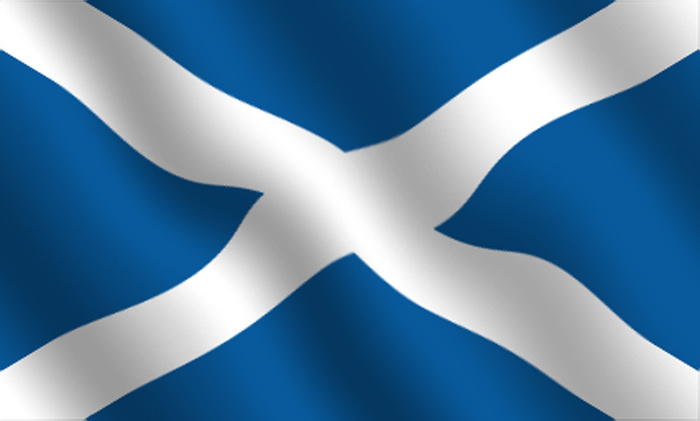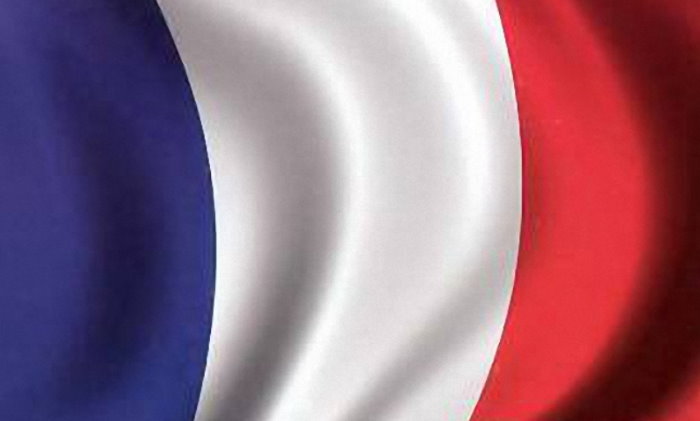|
The tune is still played by Scottish regiments as their reveille.
It is a satirical melody which commemorates the 1745 Jacobite rebellion when Sir John Cope
and the English were defeated by the Scots under Bonnie Prince Charlie at the Battle of Prestonpans,
on the 22nd of September, 1745.
In 1745, when Prince Charles landed in the highlands, Sir John was commander in chief in Scotland and he bravely resolved to march into the Highlands to oppose him. Cope was ill-prepared and outnumbered, and soon retreated in the face of opposition in order to regroup. The rebels meanwhile secured Edinburgh and when they learned that Cope was marching to the city’s relief they marched to meet him. |

|
Both armies neared each other at Prestonpans
late in the day, separated by marshy ground, and it was resolved to wait until the next day
to begin hostilities. During the night however, Prince Charlie was apprised by the wily Jacobite
commander Lord George Murray that a passage or ford was to be had through the marshy ground
and the rebels resolved to filter through at night and take the English forces by surprise in the morning.
This was effected and the surprise was complete. Half awake and utterly bewildered,
Cope’s troops could make no effective resistance, and in a few minutes were in headlong flight.


|
"Johnny Cope" music is probably a version of the older tune "Fye to the Coals in the Morning". It also has a resemblance with the Scots tune "Balquhidder Lasses" and the Irish Hornpipe tune "The Drunken Sailor”.
The song lyrics were written by Adam Skirving, an extremely literate East Lothian farmer whose fields were tramped by the passage of the armies on the day of the battle. The song gives an account from the Jacobite viewpoint of the Battle of Prestonpans. The song includes several apocryphal incidents, including challenges conveyed by letters between Cope and his rival Bonnie Prince Charlie, as well as exaggerated accounts of Cope’s cowardice. It also includes an account of him fleeing from the battle all the way back to Berwick, being the messenger of his own defeat, which is also doubtful. The battle, however, was a decisive victory for the Jacobites.
Cope was not really at fault for the loss, given the circumstances. He was later found not negligent at a court-martial, given that he had done all correctly, but was outflanked by the surprise dawn attack on a flank he had thought secured by the marsh.
JOHNNY COPE LYRICS
It has been recorded by The Corries, Natalie MacMaster, The Tannahill Weavers, and Planxty. These words were written in 1745 by Adam Skirving (1719-1803).

Cope sent a challenge frae Dunbar, Sayin "Charlie meet me an’ ye daur; An’ I’ll learn ye the airt o’ war, If ye’ll meet me in the morning." Chorus O Hey! Johnnie Cope are ye waukin’ yet? Or are your drums a-beating yet? If ye were waukin’ I wad wait, Tae gang tae the coals in the morning. (*) Prestonpans was the location of coal fields. When Charlie looked the letter upon, He drew his sword and scabbard from, Come, follow me, my merry men, And we’ll meet Johnnie Cope in the morning. Chorus Now Johnnie, be as good as your word, Come, let us try baith fire and sword, And dinna flee like a frichted bird, That’s chased frae its nest i’ the morning. Chorus When Johnnie Cope he heard o’ this, He thocht it wouldna be amiss, Tae hae a horse in readiness, Tae flee awa in the morning. Chorus Fye now, Johnnie, get up an’ rin, The Highland bagpipes mak’ a din, It’s better tae sleep in a hale skin, For it will be a bluidie morning. Chorus When Johnnie Cope tae Dunbar cam, They speired at him, "Where’s a’ your men" "The de’il confound me gin I ken, For I left them a’ in the morning." Chorus Now Johnnie, troth ye werena blate, Tae come wi’ news o’ your ain defeat, And leave your men in sic a strait, Sae early in the morning. Chorus In faith, quo Johnnie, I got sic flegs Wi’ their claymores an’ philabegs, Gin I fecht them again, de’il brak my legs, So I wish you a’ good morning. |

Cope défia le Prince depuis Dunbar. Il lui écrivit : « Charles oseras-tu venir te battre ? » Je t’enseignerai l’art de la guerre Si tu viens jusqu’à moi dans la matinée. Refrain Hey ! Johnny Cope es-tu toujours en route ? Tes tambours battent-ils encore la cadence ? Si tu viens à moi, je t’attendrai Pour te combattre dans les houillères au petit matin. (*) Prestonpans est un bassin houiller Après avoir lu la lettre Charles tira son épée du fourreau. Tous avec moi mes joyeux compagnons, Nous affronterons Johnny Cope à l’aurore. Refrain Maintenant Johnny soit digne de tes propos, Viens affronter nos balles et nos lames Sans fuir comme l’oiseau effrayé Qui, pourchassé, abandonne son nid. Refrain Lorsque Johnny Cope entendit cela Il jugea prudent, au cas où, De prévoir un cheval Pour fuir au loin dès l’aurore. Refrain Fui dès maintenant Johnny. Lève toi et cours. Lorsque les cornemuses rugissent Mieux vaut partir dormir sans une balafre Que de vivre une matinée sanglante. Refrain Quand Johnny Cope arriva à Dunbar, On lui demanda : où sont vos hommes ? « Seul le diable le sait, depuis que le les ai abandonnés ce matin ». Refrain A présent Johnny, croyez-vous pouvoir sans crainte M’annoncer la nouvelle de votre propre défaite En ayant laissé vos hommes aux abois Si tôt ce matin ? Refrain En vérité, moi Johnny, j’ai eu peur De leurs claymores et de leurs kilts Plutôt que de leur faire à nouveau face, que le diable me brise les jambes Ainsi passerais-je une meilleure matinée. |
Robert Burns also wrote a set of lyrics to the tune.

Cope sent a challenge frae Dunbar, Sayin "Charlie meet me an’ ye daur; An’ I’ll learn ye the art o’ war, If ye’ll meet me in the morning." Chorus Hey Johnie Cope are ye wauking yet, Or are ye sleeping I would wit: O haste ye get up for the drums do beat, Of fye Cope rise in the morning. He wrote a challenge for Dunbar, Come fight me Charlie an ye daur; If it be not by the chance of war I’ll give you a merry morning. When Charlie look’d the letter upon He drew his sword and scabbard from "So Heaven restore to me my own, I’ll meet you, Cope, in the morning." Cope swore with many a bloody word That he would fight them gun and sword, But he fled frae his nest like an ill scar’d bird, And Johnnie he took wing in the morning. It was upon an afternoon, Sir Johnie march’d to Preston town; He says, "My lads come lean you down, And we’ll fight the boys in the morning." But when he saw the Highland lads Wi’ tartan trews and white cokauds, Wi’ swords and guns and rungs and gauds, O Johnie he took wing in the morning. On the morrow when he did rise, He look’d between him and the skies; He saw them wi’ their naked thighs, Which fear’d him in the morning. O then he flew into Dunbar, Crying for a man of war; He thought to have pass’d for a rustic tar, And gotten awa in the morning. Sir Johnie into Berwick rade, Just as the devil had been his guide; Gien him the warld he would na stay’d To foughten the boys in the morning. Says the Berwickers unto Sir John, O what’s become of all your men, In faith, says he, I dinna ken, I left them a’ this morning. Says Lord Mark Car, ye are na blate, To bring us the news o’ your ain defeat; I think you deserve the back o’ the gate, Get out o’ my sight this morning. |

Sir John Cope fit route droit au nord, Sans jamais rencontrer de rebelles Jusqu’à ce qu’il arriva à Dunbar Très tôt, un matin. Refrain Hey Johnny Cope es-tu toujours en route ? Ou t’es-tu endormi ? Je risque d’attendre : Hâtes toi, fait battre les tambours Et lève toi ! Il lança un défi depuis Dunbar, Viens me combattre si tu oses. Si nous ne devions pas nous en remettre au sort des armes Je vous aurais souhaité une joyeuse matinée. Lorsque Charles lut la lettre Il tira son épée du fourreau : « Que Dieu me vienne en aide Cope, je te combattrai à l’aurore » Cope jura de se battre Jusqu’à la mort, Mais, comme l’oiseau affolé quitte son nid, Il s’enfuit dans la matinée. La veille Sir Johnny Cope en entrant dans Prestonpans Disait à ses hommes : « prenez du repos Nous vaincrons demain matin ». Mais lorsqu’il vit les montagnards Avec leurs kilts et leurs cocardes blanches Leurs épées, armes à feu, gourdins et poignards, Johnny prit la poudre d’escampette. Le lendemain, lorsqu’il dut se réveiller, Il regarda entre lui et l’horizon ; Et les vit avec leurs jambes nues Venir le menacer dès l’aurore. En fuyant à Dunbar Le guerrier pleura Lorsqu’il réalisa s’être conduit en froussard, En s’éclipsant dès l’aurore. C’est dans la rade de Berwick Que Johnnie avoua avoir cédé au diable ; Et que pour rien au monde Il n’aurait affronté son adversaire ce matin-là. Ceux de Berwick lui demandèrent Ce qu’il était advenu de ses hommes. En toute franchise, il avoua ne rien en savoir, Les ayant quittés à l’aurore. Lord Mark Kerr lui répondit : n’avez-vous pas honte De nous porter la nouvelle de votre propre défaite ? Vous méritez que je vous mette à la porte, Allez au diable ! |
VIDEO SUGGESTION(S)
|
The Corries
|
Andy Stewart
|
|
De Innocentis - Guitar Master
|
A. Skirving poem
|


- This page has been accessed 25252 times -
Copyright © 2009-2021 Stéphane BÉGUINOT, All Rights Reserved.